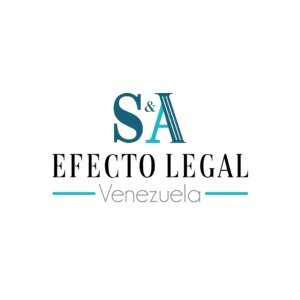Best Climate Change Law Lawyers in Venezuela
Share your needs with us, get contacted by law firms.
Free. Takes 2 min.
Or refine your search by selecting a city:
List of the best lawyers in Venezuela
About Climate Change Law in Venezuela
Climate Change Law in Venezuela is a developing area that seeks to address the environmental, social, and economic challenges caused by climate change. Although Venezuela has not yet enacted a comprehensive climate change law, it has ratified several international treaties, such as the United Nations Framework Convention on Climate Change (UNFCCC) and the Paris Agreement. The nation's constitution and environmental regulatory framework, including the Organic Law of the Environment, provide a basis for government action and private sector responsibility regarding climate change mitigation and adaptation.
Venezuela's approach to climate change generally revolves around state-led initiatives, the regulation of natural resource exploitation, conservation efforts, and collaboration with international organizations. The government periodically publishes national plans and policy documents that address climate-related concerns, including sustainable development, emissions reduction, and disaster risk management.
Why You May Need a Lawyer
Navigating climate change regulations and understanding environmental responsibilities can be complex. Here are some common situations where legal help may be necessary in the context of Climate Change Law in Venezuela:
- Securing permits for projects that may impact the environment or require an environmental impact assessment
- Responding to regulatory changes or compliance audits related to emissions and resource use
- Participating in renewable energy, sustainable agriculture, or conservation projects that need legal structuring
- Pursuing claims or defending against allegations of environmental harm or policy non-compliance
- Engaging in public consultations or legal proceedings on climate adaptation and mitigation measures
- Interpreting state or municipal regulations related to climate change for businesses or individuals
- Navigating international agreements and their local implementation measures
- Protecting the rights of communities or property owners affected by climate-related activities
Local Laws Overview
While Venezuela does not have a standalone climate change law, several local laws are significant for climate-related legal counsel:
- Organic Law of the Environment: This establishes the general legal framework for environmental protection, sustainable natural resource use, environmental impact studies, and pollution control.
- Law on Biological Diversity: Regulates the protection and sustainable use of biodiversity, closely linked to climate adaptation.
- National Climate Change Strategy: A policy document guiding mitigation, adaptation, and reporting strategies following international agreements.
- Regulations on Air Quality and Atmospheric Emissions: These set standards for emissions from industrial, energy, and transportation sectors.
- Land Management and Urban Planning Laws: Municipal regulations that impact adaptation efforts, zoning, and disaster risk reduction.
- Penal Law on the Environment: Establishes sanctions for environmental crimes, including those affecting the climate.
International treaties ratified by Venezuela, such as the Paris Agreement, have an influence on local policy and obligations, though their implementation relies on domestic regulations and institutions.
Frequently Asked Questions
What is the main law regulating climate change in Venezuela?
Venezuela does not have a specific climate change law. Instead, climate regulation is addressed through general environmental laws, mainly the Organic Law of the Environment, alongside policy frameworks and international commitments.
Is Venezuela part of any global climate agreements?
Yes, Venezuela is a signatory to several major treaties, including the United Nations Framework Convention on Climate Change (UNFCCC), the Kyoto Protocol, and the Paris Agreement.
Who enforces climate change laws and policies in Venezuela?
The Ministry of Popular Power for Ecosocialism (MINISTERIO DEL PODER POPULAR PARA EL ECOSOCIALISMO) is the principal body responsible for environmental policy, including climate change, supported by state, municipal authorities, and specialized agencies.
Do companies need an environmental permit to operate?
Yes, many commercial and industrial activities require environmental permits or an environmental impact assessment before initiation, especially if they could affect air, water, or biodiversity.
What are the penalties for violating climate-related regulations?
Penalties can include fines, suspension of activities, revocation of permits, or even criminal sanctions as detailed in the Penal Law on the Environment for more severe offenses.
How does the government address greenhouse gas emissions?
Venezuela has established emissions standards for various sectors and participates in international reporting and mitigation programs, although detailed domestic regulations are still developing.
Are there incentives for renewable energy or sustainable practices?
There are limited incentives provided by government policies for sustainable development projects, but the landscape is changing. Legal advice can help identify available benefits depending on the project and sector.
Can individuals or communities file lawsuits related to climate change impacts?
Yes, affected parties may bring environmental claims for damages or to halt activities that harm the environment, though this may require navigating a complex judicial and administrative process.
How can international climate law affect local businesses?
International obligations influence national regulations and may require businesses to adopt new standards in emissions, reporting, and mitigation, especially those engaged in import-export or large-scale industrial activities.
What role do local governments play in climate change policy?
Municipalities and states implement local adaptation measures, enforce regulations, and can develop zoning and disaster risk management plans relevant to climate resilience.
Additional Resources
Several organizations and governmental bodies provide information and support regarding Climate Change Law in Venezuela:
- Ministry of Popular Power for Ecosocialism (MINISTERIO DEL PODER POPULAR PARA EL ECOSOCIALISMO): The government authority responsible for environmental management and climate policy.
- Attorney General's Office for Environmental Matters (Fiscalía Ambiental): Handles environmental protection cases, including those related to climate damage.
- Universities and Research Institutes: Many academic institutions offer research and legal clinics focused on environmental and climate issues.
- Environmental NGOs: Organizations like Provita and Fundación Tierra Viva are active in advocacy, legal education, and community action on climate issues.
- Venezuelan Bar Associations: Offer legal directories and referrals to attorneys specializing in environmental and climate change law.
Next Steps
If you need legal assistance in matters related to Climate Change Law in Venezuela, consider the following steps:
- Identify your legal issue or objective, such as compliance, project development, or dispute resolution related to climate impacts
- Gather all relevant documents, including permits, project plans, correspondence with regulators, or records of alleged harm
- Consult reliable resources to understand your rights and obligations under local and international law
- Contact a qualified environmental or climate change lawyer familiar with Venezuelan law
- Schedule a consultation to discuss your case and outline potential legal strategies
- Engage your lawyer to represent you in negotiations, administrative procedures, or court actions as needed
- Stay informed about changes in climate policy and regulations that could impact your situation
Taking prompt legal advice can help you navigate the complexities of climate change law, protect your interests, and contribute to a more sustainable future.
Lawzana helps you find the best lawyers and law firms in Venezuela through a curated and pre-screened list of qualified legal professionals. Our platform offers rankings and detailed profiles of attorneys and law firms, allowing you to compare based on practice areas, including Climate Change Law, experience, and client feedback.
Each profile includes a description of the firm's areas of practice, client reviews, team members and partners, year of establishment, spoken languages, office locations, contact information, social media presence, and any published articles or resources. Most firms on our platform speak English and are experienced in both local and international legal matters.
Get a quote from top-rated law firms in Venezuela — quickly, securely, and without unnecessary hassle.
Disclaimer:
The information provided on this page is for general informational purposes only and does not constitute legal advice. While we strive to ensure the accuracy and relevance of the content, legal information may change over time, and interpretations of the law can vary. You should always consult with a qualified legal professional for advice specific to your situation.
We disclaim all liability for actions taken or not taken based on the content of this page. If you believe any information is incorrect or outdated, please contact us, and we will review and update it where appropriate.
Browse climate change law law firms by city in Venezuela
Refine your search by selecting a city.













